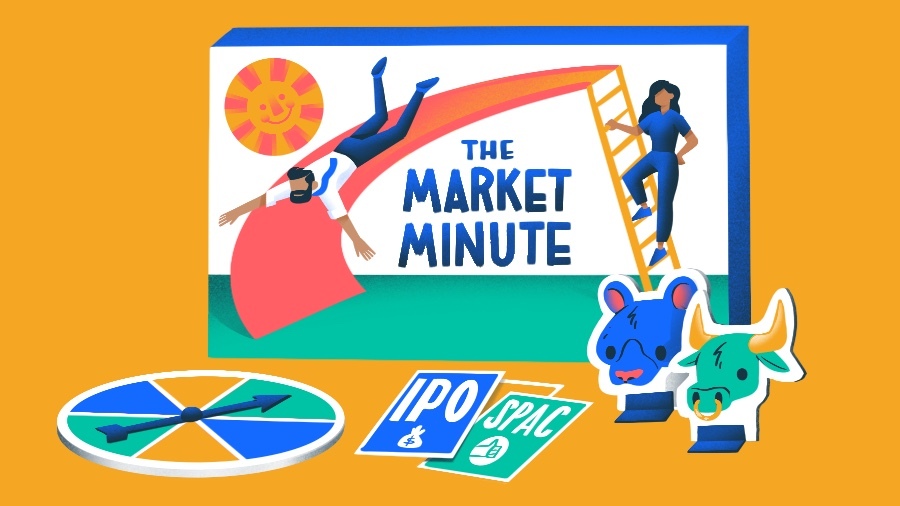This was a record year for companies going public, with startups and legacy brands alike tapping into a public market that was hungry to invest. According to IPO research firm Renaissance Capital, 2021 was the busiest year for IPOs, with 399 offerings collectively raising $142.5 billion.
Here at Crunchbase News, we’ve been tracking venture-backed companies that have hit the public markets through IPOs, direct listings and SPACs. Now, as we close out 2021, we’re rounding up the largest VC-backed public debuts of the year. We included VC-backed companies that went public this year on the Nasdaq or New York Stock Exchange and ranked them by deal size (not valuation).
Search less. Close more.
Grow your revenue with all-in-one prospecting solutions powered by the leader in private-company data.
The list includes companies from around the world, companies that haven’t made money yet, and companies that went public in other ways besides a traditional IPO. Let’s take a look.
No. 1: Rivian
- IPO date: Nov. 10, 2021
- Money raised at IPO: $11.9 billion
- Valuation at IPO: $66.5 billion
- Some investors: Amazon, Ford Motor
Rivian topped the list as the largest IPO of 2021, without even having its product out in the mass market. The electric vehicle-maker raised the most money of all the VC-backed companies that went public this year in its November IPO, reaching a valuation of $66.5 billion. It probably helped that Amazon was a major investor and pre-ordered a large fleet of vehicles from the company, so its sales pipeline is strong.
No. 2: Coupang
- IPO date: March 11, 2021
- Money Raised at IPO: $4.6 billion
- Valuation at IPO: $60 billion
- Some Investors: SoftBank Vision Fund, Sequoia Capital
The South Korea-based e-commerce platform went public in what was at the time the largest IPO of the year. Coupang raised $4.6 billion through its initial public offering, securing a $60 billion valuation. Among the biggest winners in the IPO were the SoftBank Vision Fund and Greenoaks Capital. Coupang raised around $3.4 billion as a private company.
No. 3: Lucid Motors (via SPAC)
- IPO date: July 25, 2021
- Money raised at IPO: $4.6 billion
- Valuation at IPO: $24 billion
- Some investors: Saudi Arabia’s Public Investment Fund, Venrock
This year was big for EV companies going public–particularly through special-purpose acquisition companies. SPACs in general were popular this year, and numerous EV companies opted to use them to raise capital, since SPACs allow companies going public to use future projections in their marketing, and many EV companies are pre-revenue. That includes Lucid Motors, which doesn’t have a vehicle on the market, but still raised $4.6 billion through its IPO. The company was valued at $24 billion at its public offering, showing that investors are betting that once Lucid rolls out some cars, it has a big opportunity to be a dominant player in the EV space.
No. 4: Grab (via SPAC)
- IPO date: Dec. 2, 2021
- Money raised at IPO: $4.5 billion
- Valuation at IPO: $40 billion
- Some Investors: Signite Partners, Emtek Group
Singapore-based ride-hailing and delivery company Grab went public toward the end of the year in one of the largest public debuts, raising $4.5 billion through its SPAC merger. The company, valued at $40 billion, combined with Altimeter Growth Corp. to make it the largest company to close a SPAC merger, according to CNBC. Grab is backed by investors like Experian Ventures and Emtek Group.
No. 5: Didi
- IPO date: June 30, 2021
- Money Raised at IPO: $4.4 billion
- Valuation at IPO: $73 billion
- Some Investors: Toyota Motor, SoftBank Vision Fund
The story of Didi’s IPO is one of triumph and tragedy (OK, maybe that’s a little dramatic). The Chinese ride-hailing giant went public over the summer, raising $4.4 billion and earning a valuation of $73 billion. But soon after the IPO, the Chinese government cracked down on Didi, essentially stopping new downloads of its app, which drove down its stock price. Didi’s stock has suffered since its public debut, and the company announced plans to delist from the New York Stock Exchange less than six months after its IPO.
Search less. Close more.
Grow your revenue with all-in-one prospecting solutions powered by the leader in private-company data.
No. 6: Nubank
- IPO date: Dec. 9, 2021
- Money raised at IPO: $2.6 billion
- Valuation at IPO: $41 billion
- Some investors: Goldman Sachs, DST Global
Brazil-based neobank Nubank raised $2.6 billion through its IPO this month. Nubank, which raised money from investors like TCV and Founders Fund, was one of two venture-backed companies from Brazil to go public this year on the NYSE or Nasdaq, the other being Zenvia. Sequoia Capital, Tiger Global Management and Tencent were among the biggest winners in Nubank’s IPO.
No. 7: Aurora (via SPAC)
- IPO date: Nov. 4, 2021
- Money raised at IPO: $2.5 billion
- Valuation at IPO: $14 billion
- Some investors: Uber, Index Ventures
Self-driving car company Aurora raised $2.5 billion through a SPAC merger with the blank-check company Reinvent Technology Partners last month. The company, which raised money from investors including Sequoia Capital and Greylock, was valued at $14 billion at the time of its IPO.
No. 8: SoFi (via SPAC)
- IPO date: June 1, 2021
- Money raised at IPO: $2.4 billion
- Valuation at IPO: $8.7 billion
- Some Investors: Silver Lake, Qatar Investment Authority
SoFi was one of several companies that went public through a Chamath Palihapitiya-founded SPAC. The fintech company went public over the summer, raising $2.4 billion in the process and reaching a valuation of $8.7 billion. As a private company, SoFi raised $3 billion in funding from investors including Silver Lake and the Qatar Investment Authority.
No. 9: ironSource
- IPO date: June 29, 2021
- Money raised at IPO: $2.3 billion
- Valuation at IPO: $11.1 billion
- Some Investors: Thoma Bravo, Access Industries
Israel-based ironSource raised $2.3 billion through its IPO, reaching an $11.1 billion valuation. The company, which is backed by investors including CVC Capital Partners and Viola Ventures, was one of four venture-backed Tel Aviv-based companies to go public on the major U.S. stock exchanges this year, along with Monday.com, Innoviz Technologies and Chemomab.
No. 10: Bumble
- IPO date: Feb. 11, 2021
- Money raised at IPO: $2.15 billion
- Valuation at IPO: $8.2 billion
- Some investors: Greycroft, Accel
Bumble’s IPO made founder Whitney Wolfe Herd the youngest woman to take a company public. The female-centric dating app made its public market debut just before Valentine’s Day, raising $2.15 billion and reaching a valuation of $8.2 billion. Bumble competes with dating giant Match Group, which owns apps and websites like Tinder, Hinge and PlentyOfFish. While Bumble started off in the dating space, it’s since expanded with features to make new friends and connect with other professionals.
Illustration: Dom Guzman

Stay up to date with recent funding rounds, acquisitions, and more with the Crunchbase Daily.



![Illustration of stopwatch - AI [Dom Guzman]](https://news.crunchbase.com/wp-content/uploads/Halftime-AI-1-470x352.jpg)







67.1K Followers